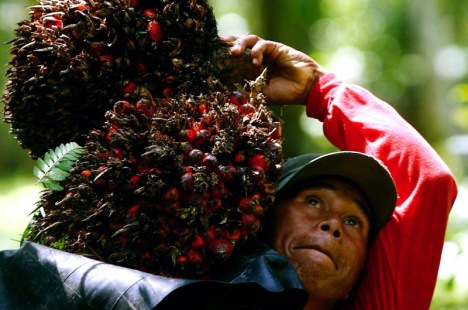Govt to go ahead with free trade deal with India
The Jakarta Post | Mon, 05/24/2010
Govt to go ahead with free trade deal with India

The government will go ahead with the implementation of another free trade agreement with India despite strong opposition from local industries about a similar trade deal with China early this year, says a senior trade official.
Trade Minister Mari Elka Pangestu said in Jakarta last week that together with other ASEAN countries, Indonesia would implement the free trade agreement with India to take advantage of the South Asian country’s massive local market.
Mari said that Indonesia would fully implement the ASEAN-India FTA (AIFTA) on June 1 and was also scheduled to implement similar trade deals with South Korea, Australia and New Zealand.
"We should take up the opportunities to benefit from the implementation of the agreements," the trade minister told The Jakarta Post on Thursday. She said the free trade agreement with India would benefit Indonesia’s CPO producers.
"India is now imposing import tariffs of up to 80 percent on Indonesian CPO products.
"Fortunately, we have been successful in negotiations with India to gradually decrease the tariffs after the implementation of the agreement," she said.
According to Deputy Trade Minister Mahendra Siregar, without a free trade agreement with India, Indonesia would miss out on potential revenues of about US$3 billion from CPO exports a year. Mahendra said it could lead to a potential loss of $8 billion if combined with other products.
"The loss might affect about 4.5 million farmers and workers in the CPO-related sector," he said.
India is Indonesia’s fastest growing export destination after China.
Apart from CPO, Mari said, the AIFTA would potentially create benefits for other local products, such as textiles and clothing.
She said domestic products might have difficulties in competing with cheaper pharmaceutical and automotive products imported from India.
Based on ASEAN Secretariat data, the AIFTA market will cover 1.8 billion people in the two economies with a combined Gross Domestic Product (GDP) of $2.75 trillion. Indonesia is the fifth country in the region to ratify the agreement, after Malaysia, Singapore, Thailand and India, which implemented it on Jan.1.
Head of the House of Representatives’ Commission VI overseeing trade, industry and investment Airlangga Hartarto, told the Post last week the AIFTA actually provided less significant challenges than the ACFTA.
India, he said, had cheaper automotive products and the Indonesian market had been "protected" by Japanese automotive brands.
Other superior commodities from India such as textiles, he said, would also face strong competition from Chinese products.





